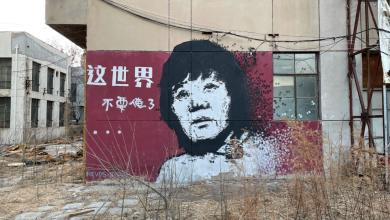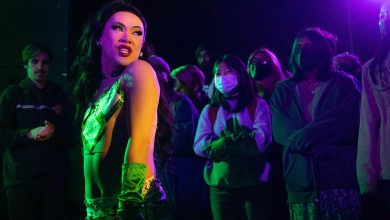Do Straight Feminists Hate Lesbians?
A simple definition of feminism could be, “Equality for all.” Pretty simple, right?
There are varying levels of privilege that depend on a lot of different factors: race, economic background, gender, and body type, to name a few.
One of the most basic concepts of privilege is that men have more than women. There is also privilege that comes with sexual orientation, but somehow discussions about the ominous “L word” and feminism are few and far between.
Historically, feminists pushed away lesbians and even referred to them as “The Lavender Menace.” Charming, huh? Although that was over fifty years ago, the support between self-declared feminists and queer ladies is still lagging.
Victoria Brownworth, Pulitzer Prize-nominated journalist and first out columnist to have a daily newspaper column, recently wrote an article for the Huffington Post about her isolation from the feminist community as a result of her sexuality.
When she received death threats on Twitter back in July after commenting on the racism involved in the George Zimmerman trial, the straight feminist community remained silent; there was no support or call to arms. This is especially disheartening because a few weeks earlier, a straight feminist blogger had a similar experience and the entire feminist community took action and supported her on varying social media platforms.
While it’s wonderful that the other blogger was supported, it’s sad to realize the same love was not extended to a lady loving ally.
The disconnection between feminism and lesbianism is at best estranged and at worst entirely nonexistent.
As mentioned earlier, women have less privilege than men; it would therefore be logical to conclude that lesbians have even less privilege than straight women because they will never receive the societal benefits of having a straight male partner–i.e. social acceptance and respect.
Feminists love to talk about every kind of “ism” imaginable. But where’s the discussion about lesbianism? Perhaps more importantly, if an entire movement is based around equality, how can it ignore a subgroup facing the same discrimination but amplified?*
If you’re still unconvinced about the connection between lesbianism and feminism, then I’ll leave you with this:
One night, my girlfriend and I were walking home, hand in hand on a cold winter night in London when a young man approached us.
“You’re hot,” he slurred. We picked up the pace and continued walking.
He matched our increase and approached me directly. “Can I have your number?” he asked with smirk.
I responded, “No, I’m with my girlfriend and we’re going home.” He didn’t miss a beat.
“Look I know you’re like, lesbians or whatever, but you’re still hot, can I join you?” I glared at him and he continued, “What about if I just watch?”
The whole encounter left me feeling disgusted and violated. This random stranger viewed my sexuality (and monogamous relationship) as a spectator sport he was entitled to be a part of.
Even beyond that, I realized that he would never have had the nerve to approach me if I had been hand in hand with a man because chances are he would have found himself with a black eye.
Because I was with another female, this stranger felt entitled to my time, relationship, and body.
Those entitled assumptions are exactly what modern day feminism should be fighting against. When excluding lesbians (or trans women, or any minority group for that matter), feminists are no better than the ideologies they’re fighting against.
What do you think? Are lesbians still a “lavender menace?”
*In the interest of length, I did not include an in depth discussion of intersectionality. For more information about how identities intersect visit
For some lesbian long-distance loving check out my blog, Alex and Tay Everyday.
I also write a lifestyle and mindfulness blog, The Sapphic Scoop.




